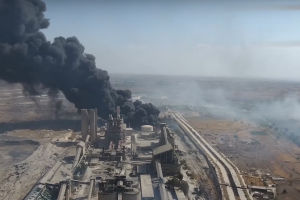On 6 November 2017, 31 NGOs and 12 experts joined forces and used the United Nations’ International Day for Preventing the Exploitation of the Environment in War and Armed Conflict as an opportunity to advocate for greater progress in efforts to protect people and the environment from the impact of warfare. The group made five calls to the international community:
- Increase the protection of civilians by ensuring that the environment is fully integrated into humanitarian response, improve environmental data collection, analysis and sharing among and beyond humanitarian networks.
- Strengthen
 and properly resource the UN system to enable it to identify, monitor and respond to conflict-linked environmental threats.
and properly resource the UN system to enable it to identify, monitor and respond to conflict-linked environmental threats. - Governments, international organisations and civil society must work together to progressively develop and encourage compliance with the legal framework intended to prevent environmental damage during conflicts and to remedy harm in their wake.
- Improving the documentation of human rights violations and environmental crimes linked to wartime environmental harm and identify and develop effective remedies.
- Ensure that the sustainable and equitable management of natural resources is fully integrated into post-conflict recovery planning and that long-term assistance is available to rebuild environmental governance in conflict-affected areas.
Protecting the environment before, during and after armed conflicts means protecting the lives and the futures of communities. The socioeconomic and health consequences of wartime environmental degradation interferes with the enjoyment of fundamental human rights and with sustainable development. Particular sections of affected populations may be disproportionately vulnerable to harm or exclusion from processes to protect their rights.
Read more here.